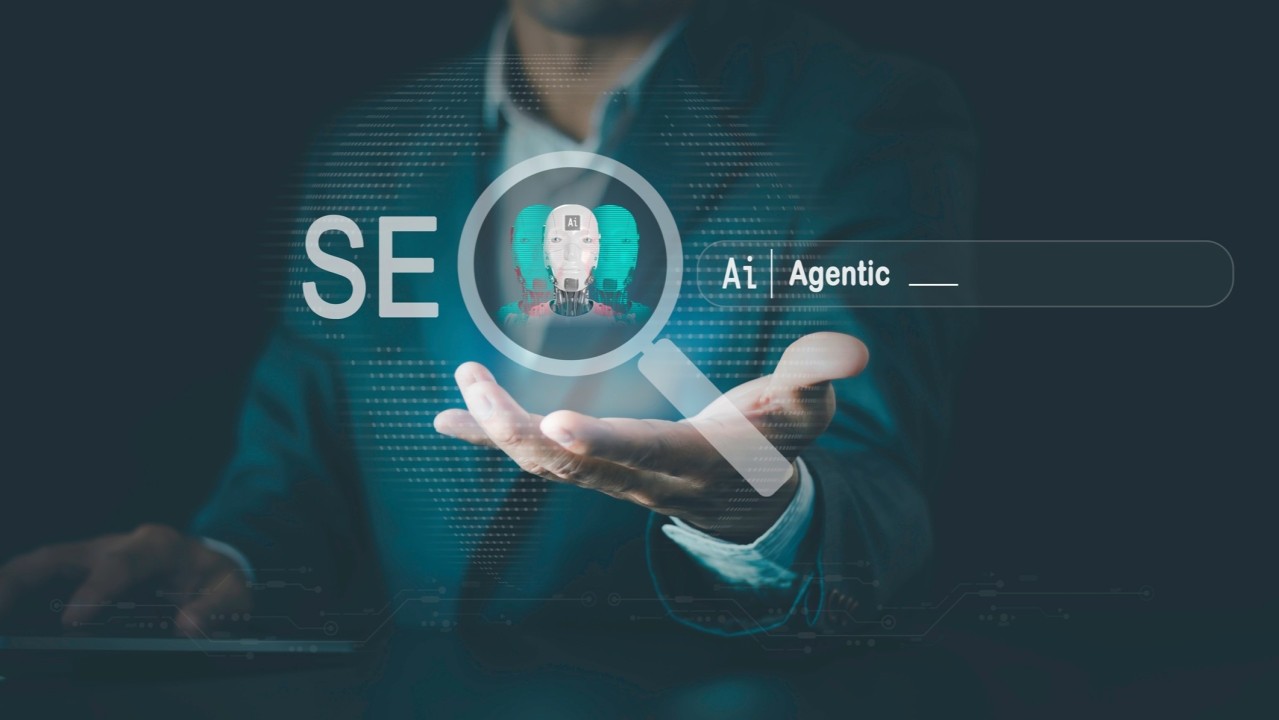News
Data-Driven Marketing: The Role of Agencies in Analysing and Optimising Campaigns
Data has become the lifeblood of successful marketing strategies. Companies no longer rely on gut feelings or traditional methods of consumer outreach; instead, they are increasingly turning to data-driven marketing to enhance their efforts.
The role of marketing agencies in this landscape has evolved dramatically, as they are now expected to harness data analytics to track marketing performance and optimise campaigns effectively. This shift has transformed how agencies operate, requiring them to blend creativity with a deep understanding of data to drive successful outcomes for their clients.
The Evolution of Data-Driven Marketing
Marketing has undergone a significant transformation over the past few decades. Traditional advertising methods, such as print ads, television commercials, and radio spots, once dominated the landscape. While these methods are still relevant, they are increasingly being supplemented or even replaced by digital marketing channels that offer far greater opportunities for targeting, personalisation, and measurement.
The rise of the internet and digital technologies has led to an explosion of data. Every click, search, and social media interaction generates a wealth of information that can be analysed to gain insights into consumer behaviour. This data, when harnessed correctly, allows marketers to craft more targeted and effective campaigns. According to a 2022 report by the Data & Marketing Association (DMA), 86% of marketers in the UK are using data to improve their marketing strategies, highlighting the growing importance of data-driven approaches.
Data-driven marketing involves the use of data to guide marketing decisions. This can include anything from identifying target audiences and selecting the right channels to measuring the effectiveness of campaigns and making real-time adjustments. The goal is to create more relevant and personalised experiences for consumers, which in turn can lead to higher engagement, increased conversion rates, and improved return on investment (ROI).
The Role of Agencies in Data-Driven Marketing
Marketing agencies have always played a crucial role in helping businesses reach their target audiences. However, the shift towards data-driven marketing has fundamentally changed the way agencies operate. Today, agencies are expected to not only create compelling campaigns but also to use data to inform every aspect of the marketing process.
Data Collection and Management
One of the first steps in any data-driven marketing strategy is the collection and management of data. This data can come from a variety of sources, including website analytics, social media platforms, customer relationship management (CRM) systems, email marketing tools, and third-party data providers. Agencies need to have the right tools and expertise to gather and organise this data effectively.
Data management platforms (DMPs) and customer data platforms (CDPs) are commonly used by agencies to consolidate data from multiple sources into a single, unified view. This allows agencies to gain a comprehensive understanding of the customer journey, from initial awareness to final purchase. With a unified dataset, agencies can segment audiences more accurately and tailor their messaging to different customer groups.
Data Analysis and Insights
Once the data has been collected and organised, the next step is analysis. This is where agencies can truly add value, as the ability to interpret data and extract actionable insights is critical to the success of a data-driven marketing strategy.
Agencies use a variety of analytical tools and techniques to analyse data, including descriptive analytics (which looks at what has happened), diagnostic analytics (which seeks to understand why something happened), predictive analytics (which forecasts future outcomes), and prescriptive analytics (which recommends actions to achieve desired outcomes). By applying these techniques, agencies can identify patterns and trends that may not be immediately apparent and use this information to inform their marketing strategies.
For example, an agency may analyse website traffic data to determine which pages are most popular with users and which pages have the highest bounce rates. This information can then be used to optimise the website’s content and design, improving the user experience and increasing the likelihood of conversions. Similarly, social media analytics can reveal which types of content resonate most with a brand’s audience, allowing the agency to refine its social media strategy and maximise engagement.
Campaign Optimisation
Data-driven marketing is not a one-time effort but rather an ongoing process of optimisation. Agencies play a critical role in this process by continuously monitoring campaign performance and making adjustments based on data.
One of the key advantages of digital marketing is the ability to track and measure campaign performance in real-time. This allows agencies to quickly identify what is working and what is not, enabling them to make data-driven decisions to optimise campaigns on the fly. For instance, if an agency notices that a particular ad is underperforming, it can adjust the targeting, creative, or bidding strategy to improve its effectiveness.
A/B testing is a common technique used by agencies to optimise campaigns. This involves creating two or more variations of an ad or landing page and testing them against each other to see which performs better. By systematically testing different elements of a campaign, agencies can identify the most effective strategies and maximise ROI.
In addition to real-time optimisation, agencies also conduct post-campaign analysis to evaluate overall performance and identify areas for improvement. This analysis can include metrics such as click-through rates (CTR), conversion rates, cost per acquisition (CPA), and lifetime value (LTV) of customers. By analysing these metrics, agencies can gain insights into the long-term effectiveness of their strategies and make informed decisions for future campaigns.
Personalisation and Customer Experience
One of the most significant benefits of data-driven marketing is the ability to deliver personalised experiences to consumers. Personalisation involves tailoring marketing messages and offers to individual customers based on their preferences, behaviours, and past interactions with a brand. This can lead to higher engagement and conversion rates, as consumers are more likely to respond to messages that are relevant to them.
Agencies use data to create detailed customer profiles, which can include information such as demographics, purchase history, browsing behaviour, and social media activity. These profiles allow agencies to segment audiences into smaller, more targeted groups and deliver personalised content that resonates with each group.
For example, an agency working with an online retailer might use data to identify customers who have previously purchased a specific product category, such as electronics. The agency could then create targeted email campaigns promoting related products, such as accessories or upgrades, to these customers. By delivering relevant and personalised offers, the agency can increase the likelihood of repeat purchases and build customer loyalty.
In addition to personalised marketing, agencies also use data to enhance the overall customer experience. This can include optimising website navigation, improving customer service interactions, and providing personalised recommendations based on past behaviour. By focusing on the customer experience, agencies can help brands build stronger relationships with their customers and drive long-term growth.
The Role of Artificial Intelligence and Machine Learning
The rise of artificial intelligence (AI) and machine learning (ML) has further enhanced the capabilities of data-driven marketing. These technologies allow agencies to process vast amounts of data more quickly and accurately, enabling them to make more informed decisions and optimise campaigns more effectively.
AI and ML can be used in a variety of ways to improve marketing performance. For example, predictive analytics models can forecast future customer behaviour based on historical data, allowing agencies to anticipate customer needs and tailor their marketing strategies accordingly. Similarly, machine learning algorithms can analyse large datasets to identify patterns and trends that may not be immediately apparent, providing agencies with deeper insights into consumer behaviour.
Chatbots and virtual assistants powered by AI are also becoming increasingly common in customer service, allowing brands to provide personalised and responsive support to customers 24/7. These tools can analyse customer queries and provide relevant answers or escalate the issue to a human agent if necessary. By improving the efficiency and effectiveness of customer service, agencies can enhance the overall customer experience and build stronger brand loyalty.
The Importance of Data Privacy and Compliance
While data-driven marketing offers significant benefits, it also comes with important responsibilities, particularly in the area of data privacy and compliance. Consumers are increasingly concerned about how their data is being used, and regulations such as the General Data Protection Regulation (GDPR) in the UK and EU have introduced strict requirements for how companies collect, store, and use personal data.
Agencies must ensure that their data-driven marketing strategies comply with all relevant regulations and that they are transparent with consumers about how their data is being used. This includes obtaining explicit consent from consumers before collecting their data, providing clear information about how the data will be used, and allowing consumers to opt-out of data collection if they choose.
Failure to comply with data privacy regulations can result in significant fines and damage to a brand’s reputation. Therefore, agencies must prioritise data privacy and security in their marketing strategies and work closely with their clients to ensure compliance.
The Future of Data-Driven Marketing
As technology continues to evolve, the role of data in marketing will only become more critical. The amount of data available to marketers is expected to continue growing, driven by the proliferation of connected devices, the expansion of the Internet of Things (IoT), and the increasing use of AI and machine learning.
In the future, we can expect to see even more sophisticated data-driven marketing strategies that leverage advanced technologies to deliver hyper-personalised experiences to consumers. For example, AI-powered chatbots may become even more capable of understanding and responding to customer needs, while predictive analytics models could become more accurate in forecasting future trends.
However, with these advancements will come new challenges, particularly in the areas of data privacy and security. As data collection becomes more pervasive, consumers will demand greater transparency and control over their personal information. Marketing agencies will need to navigate this complex landscape carefully, balancing the need for data-driven insights with the ethical considerations of data privacy.
Data-driven marketing has revolutionised the way businesses connect with their customers. Marketing agencies play a crucial role in this transformation, using data analytics to track marketing performance and make data-driven decisions for campaign optimisation. By collecting and analysing data, agencies can gain valuable insights into consumer behaviour, personalise marketing messages, and optimise campaigns in real-time to achieve better results.
As the landscape of marketing continues to evolve, the importance of data-driven strategies will only grow. Agencies that can effectively harness the power of data will be well-positioned to deliver successful outcomes for their clients, driving growth and competitiveness in an increasingly digital world. However, they must also remain vigilant in protecting consumer privacy and complying with regulations to build trust and maintain the integrity of their marketing efforts.
In the UK, where the marketing industry is highly competitive, the ability to leverage data effectively will be a key differentiator for agencies. As more companies recognise the value of data-driven marketing, the demand for agencies with expertise in data analytics and campaign optimisation will continue to rise. By staying ahead of the curve and embracing the latest technologies, agencies can ensure that they remain indispensable partners to their clients in the pursuit of marketing excellence.





The Ultimate Social Media Guide
With the ever-growing power of social media, we use the latest techniques, video, and animation software to craft eye-catching social media assets that make your brand pop. Our designers, wielding Adobe Creative tools, create distinctive animations and graphics to illuminate your brand story and highlight your products or services. Want a unique design? No problem – we also offer bespoke designs to match your brand aesthetic.